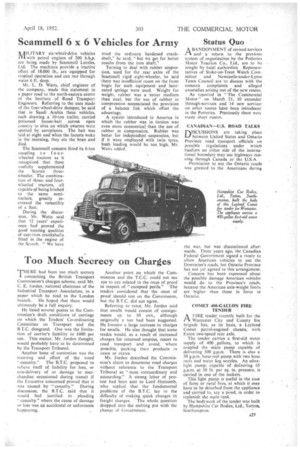Too Much Secrecy on Charges
Page 29

If you've noticed an error in this article please click here to report it so we can fix it.
'THERE had been too Much secrecy concerning the British Transport Commission's charges scheme, said Mr. C. E. Jordan, national chairman of the Industrial Transport Association, in a paper which he read to the London branch.. He hoped that there would ultimately be a full inquiry.
He listed several points in the Commission's draft conditions of carriage on which the Traders' Co-ordinating Committee on Transport and the B.T.C. disagreed. One was the limitation of carrier's liability to £400 per ton. This matter, Mr. Jordan thought, would probably have to be determined by the Transport Tribunal.
Another bone of contention was the meaning and effect of the word " casualty." The B.T.C. proposed to relieve itself of liability for loss, or mis-delivery of or damage to merchandise occasioned during transit if the Executive concerned proved that it was caused by "casualty." During discussion, the B.T.C. said that it would feel justified in . pleading
casualty" where the cause of damage or loss was an accidental or unforeseen happening. Another point on which the Commission and the T.C.C. could not see eye to eye related to the onus of proof in respect of " excepted perils." The traders considered that the onus of , proof should rest on the Commission, but the B.T.C. did not agree.
Referring to rates, Mr. Jordan said that smalls would consist of consignments up to 10 cwt., although originally a ton had been suggested. He foresaw a large increase in charges for smalls. He also thought that some trades would, as a result of increased charges for returned empties, resort to road transport and avoid, where possible, packing their products in cases or crates.
Mr. Jordan described the Commission's claim to determine road charges without reference to the Transport Tribunal as " most extraordinary and astounding." A strong letter of protest had been sent to Lord Hurcomb, who replied that the fundamental problems of the B.T.C. fay in the difficulty of making quick changes in freight charges. The whole question dropped into the melting pot with the chang,c of (iovernment.












































































